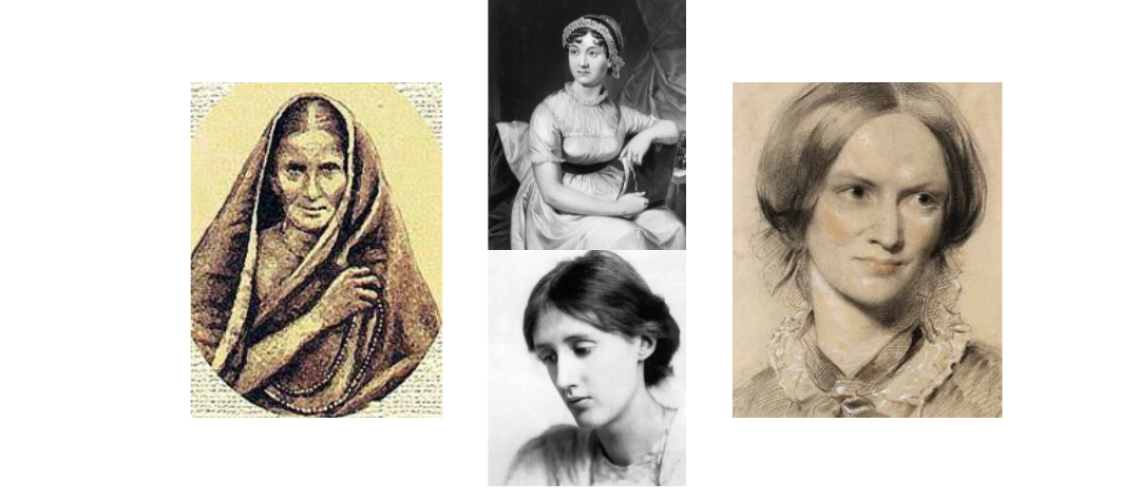Some books give us knowledge, some give us hope, and some make us happy, but “A Room of One’s Own” by Virginia Woolf made me thoughtful like nothing else. This book specified why it was almost impossible for women to become writers until the nineteenth Century. This book made me think about how the lack of women’s power in society reflects in every corner of it, from politics to art.
This book also planted a question in my mind, “Are we, as women doing justice to the freedom and power we have?”
Women’s Power: Struggle
Freedom is a luxury that most cannot value when it comes without a fight. The same is true for the women’s liberty. The female readers who are reading this post have a good education degree, reading this on their own digital devices in their leisure time.
Education, personal assets, and leisure time; apparently, these things are not something to die for in the current time, but these were beyond the luxury for 16th-century women, both in Western and Eastern countries. One of the main reasons is that assets, education, and leisure belong to the powerful, and before the 19th Century, women’s power was not identified at the societal level.
In this book, author Virginia Woolf analyzed the way power connects with creativity. This has been ignored for centuries, and that made a smaller number of women in the creative field. The author stated clearly that “a woman must have money and a room of her own if she is to write fiction…”.
What a fascinating idea! Who else thought one’s room is essential to become a writer? Virginia Woolf also argued that for women, it is easier to write prose and fiction than poetry or play as the former writing needs less concentration.
Women’s Power: Determination
The writing and reading rooms were fixed for the head of the family, and the less powerful gender had no other option than to write in the drawing room or dining room. Writing in a drawing room with constant interruption was part of the writing routine of women writers in the 18th Century. Every entrance of the visitors made a pause in the writing. The women authors writing in those drawing rooms took all the precautions to guard their writing from the visitors’ eyes.
I can recall the words of Virginia Woolf “…Jane Austen was glad that a hinge cracked so that she might hide her manuscript before anyone came in.” This again pointed to the societal structure where women’s power was denied and so that to the need for their own space. Sadly, some of the most brilliant minds could not flourish because education was a forbidden fruit to them.
To all my women readers, what did you feel after reading this?
Relief? That you were not born in the 18th Century!
Sad? That our foremother had to suffer a lot to clear the path for us!
Angry? That a generation of talent could not bloom due to the lack of opportunity!
Women’s Power: Responsibility
After reading this book, I felt a bit guilty about all the above emotions. So many creative minds could not flourish as they did not get enough support from their surroundings, including parents and peers. We all agree that women’s power is much stronger today than in previous centuries.
The initial days of women’s empowerment were much harder than we could even think today. In today’s world, women’s power in education, health, business, and economics seems unthinkable even a hundred years ago. Liberty comes through education and personal growth, but what are we doing today with all our power and freedom? Are we using our room for creativity, or are we taking this freedom for granted?
Our foremother struggled a lot to curve our path of life toward growth. Now the question is, what will we give for the next generations to pursue?
Women’s Power: Grit
No, I am neither skeptical of the success of women’s empowerment nor critical of women’s power in society. I just want the female readers to realize the bliss they are getting today. A room of our own, a life of our own, a career of our own, a future of our own; we got everything in return for a high price paid by our earlier generations. No one gave them a chance to succeed, but they thrived in their dreams by overcoming all the difficulties and challenges.
It is worth mentioning that the first Bengali autobiography was written by a woman author, Rashsundari Debi, an ordinary woman with extraordinary willpower for self-learning. This happened way before women’s power was accepted in Indian society. Her writing originated from her passion for reading the book, Chaitanya Charitamrito, and that led her to learn reading and writing by herself. It is fascinating that she wrote her life story in 1876, even before India got her first woman graduate.
Women’s Power: Voice
The mainstream literature, almost in all languages, was dominated by male authors for a long time, which is reflected in the perspective of the stories and the character building. Even today, we often hear female actors around the globe complain about not finding meaningful roles. The origin of this issue was buried in the long past.
By borrowing the words of Virginia Woolf, I can say, “Suppose, for instance, that men were only represented in literature as the lovers of women and were never the friends of men, soldiers, thinkers, dreamers; how literature would suffer!” The tradition still carries on to most of the popular mediums where men create the major content.
The female creators gave different perspectives to the audience and focused on the parts of women’s lives that were never considered seriously. For instance, household chores have been considered not worth discussing in the literature for a long; it’s not the war that can be the center of an epic saga! Right? However this notion was broken through the rise of women’s power in the literature. The female authors built their literary universe based on the inner chambers of their lives.
Women’s Power: Future
We have come a long way from the days of Jane Austen! As women’s power in society rises, it also impacts women’s creation in different fields. In today’s world, Jhumpa Lahiri wrote about the search for the roots of immigrants in her novels and short stories; Sheryl Sandberg asked women to lean into professional opportunities without thinking much in her leadership book; Chimamanda Ngozi Adichie directed the readers to be comfortable with the term feminist in her essay.
Now, we, the present generation, must think about carrying forward the legacy passed on to us. This legacy is built on many fights, revolts, heartbreaks, and lost dreams. We should carefully pass on the legacy to our future generation, an independent band of young women working hard to curve their futures and make the world more even.


6 thoughts on “Women’s Power in Creative World: Explained By 6 Scenarios”
Nice article
Bravo! Read something so startling after a long. The line itself speaks a thousand unspoken words ‘Freedom is a luxury that most cannot be valued when it comes without a fight.’
To answer your question asked in the second part – disappointed as we don’t have the knowledge of the struggle that our ancestors have gone through nor are we interested to find out.
Forget making it better, are we even doing justice to the privileges we are getting? No.
How to change it? “The world won’t value us if we don’t value ourselves.”
Thanks Agnani for brining this out. For writing about it. While most of us talk about freedom, women empowerment etc but we do not dig deep into it. This blog gives different point of view on how things have been shaped and where should we be taking them forward.
I look forward to read this book.
Thanks again for writing.
Pretty amazed. A very good piece of writing. Excellent storytelling. Good use of references from literature.
Keep it up….
“Are we, as women doing justice to the freedom and power we have?” Cause this freedom is so hard-earned and so much subject to evolution. The line hits so deep in a world where most of us are concerned mostly around women’s freedom. Also the ‘bliss’ that you mentioned in this blog comes flowing down with a sense of warriorship too. The journey of women from wanting a room of their own to an identity of their own, has been a quiet & long one. And the journey is what made us all the way stronger as creators.
Looking forward to read more from you, Agnani!
It is true that many does not give importance to the struggle of our foremothers. However, the underlying struggle is still on. Women still have to struggle for their space. But every woman should have the understanding that every small step can make a difference.